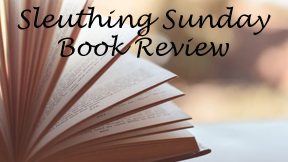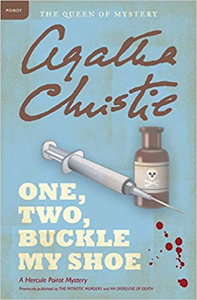Agatha Christie is not widely loved for her espionage novels featuring high-level politics. But she loved writing about those subjects. Somewhat making up for her clear low point in this genre, “The Big Four” (1927), is “The Patriotic Murders” (1940).
A motive many times removed
The novel is also known as “One, Two, Buckle My Shoe” and “An Overdose of Death,” but “The Patriotic Murders” best illustrates its theme. When a dentist – Poirot’s, as a matter of fact – is found dead, the Belgian sleuth ventures down a path wherein the motive must be political. No one has a personal motive to kill Dr. Morley.
The novel doesn’t go into serious depth about politics, but that makes it easier to grasp than, say, “The Secret Adversary” (1922) (although I liked that one as an adventure piece). Writing amid World War II, Christie is concerned about the rise in popularity of Communism. She shows a preference for sound financial policies.

“The Patriotic Murders” (1940)
Also published as: “One, Two, Buckle My Shoe” and “An Overdose of Death”
Author: Agatha Christie
Genres: Mystery, spy thriller
Series: Hercule Poirot No. 22
Setting: London, 1940
It’s quite a blast from the past to read a book where an unapologetic belief in a solvent government is mainstream. That said, if you boil the conflict down to Big Government versus Small Government, “The Patriotic Murders” remains timely and graspable.
Representatives of the side Christie doesn’t believe in are presented at a surface level. The author makes a young Communist man harsh and snappish. When his girlfriend speaks in his defense, Christie doesn’t seem to believe what comes from her own keystrokes.
She sees the broad appeal of Communism on the grounds of it being something new and exciting. But her core disagreements with the movement’s principles shine through. She’s often writing a clunky political treatise – which could’ve used a polish on a rewrite — more so than a novel with complex characters.
Poirot cuts through complexities
In order to ferret out the “Patriotic” killer, we must venture several steps away from Morley himself. As such, this novel has a lot of characters, and it’s relatively hard to keep them straight.
Still, “Patriotic” is much better than its closest comparison, “The Big Four,” because I at least got into the flow of the mystery, wherein anyone on Dr. Morley’s patient roster could be the killer or possess key information.
Poirot and Japp have classic discussions here. Poirot actually asks questions of his butler, George, more than usual.
Poirot’s interviewing skills are showcased, particularly the way he gets what he needs to know out of the dentist office’s dimwitted lift operator. (In a fun example of how things used to be, Morley’s dental practice is in his home.)

Owing to the complex machinations, “Patriotic” closes with a long explanation by the culprit. It ties together, but it’s not ideal that the penultimate chapter is when I finally grasped it all. I spent most of this novel playing catch-up, with my mind thinking “What’s going on?” more than “Who’s the killer?”
The final act (Spoilers)
Adding appeal to the denouement, Poirot reflects on his value system. (SPOILERS FOLLOW.) The killer argues that his victims were sacrificed for the good of England as a whole. Poirot sees a cold type of logic in this, but he doesn’t let the murderer off the hook.
In chapter 9, Poirot says: “Yes, that is one side. You are the right man in the right place. You have sanity, judgment, balance. But there is the other side. Three human beings who are dead.”
It’s not a surprise that Poirot values human life above all else, but it is a nice thing to read.
And I like how the murderer’s argument is similar to that of the political position he fights against: that the needs of the many outweigh the needs of the few.
The killer doesn’t realize he’s wrong in the same way his political opponents are wrong. Whether this tie-in is purposeful or accidental by Christie, it’s a tidy way to wrap up the uneven “Patriotic Murders.”
Every week, Sleuthing Sunday reviews an Agatha Christie book or adaptation. Click here to visit our Agatha Christie Zone.

